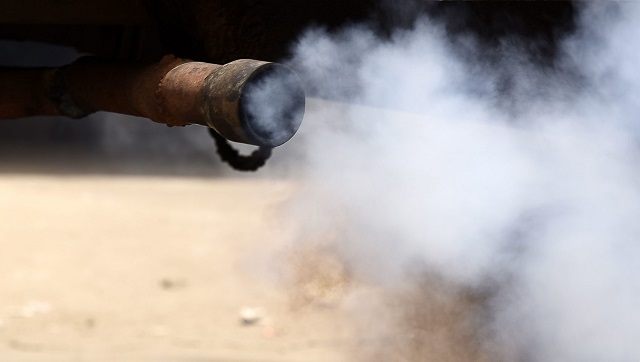Kampala, Uganda: A groundbreaking study conducted in Kampala has confirmed that timely maintenance of car engines could play a pivotal role in reducing emissions and improving the city’s troubling air quality trends.
Led by Prof. Lynn Atuyambe from Makerere University’s School of Public Health, the research highlights a pressing need for improved air quality control in Uganda’s capital and other rapidly growing cities across the country.
The study, titled Air Quality and Attributable Mortality Among City Dwellers in Kampala, Uganda: Results from 4 Years of Continuous PM2.5 Concentration Monitoring Using BAM 1022 Reference Instrument, was recently published in the High Impact Journal of Exposure Science & Environmental Epidemiology.
It reveals that long-term exposure to particulate matter (PM2.5)—tiny droplets of dust, dirt, soot, and smoke suspended in the air—has been linked to at least 7,257 air pollution-related deaths in Kampala between 2018 and 2021.
“We would like to warn that we have a real problem,” Prof. Atuyambe emphasized during a discussion with MakSPH’s John Okeya. He further disclosed, “I have just presented the results to the National Communicable and Non-Communicable Diseases Technical Working Group of the Ministry of Health.
They were surprised but it’s true. So, as citizens, I would like to warn and advise that we should reduce and mitigate air pollution.”
The study’s findings are alarming. Over the four-year period, the annual average concentration of PM2.5 in Kampala was found to be 39 micrograms per cubic meter—eight times the World Health Organization’s recommended limit of five micrograms per cubic meter. This high level of pollution has significant health implications, including respiratory and cardiovascular diseases, particularly affecting infants, the elderly, and those with preexisting conditions.
Prof. Atuyambe and his team, including Mr. Samuel Etajak, Mr. Felix Walyawula, Dr. Simon Kasasa, Ms. Agnes Nyabigambo, Prof. William Bazeyo, Prof. Heather Wipfli, Prof. Jonathan Samet, and Prof. Kiros Berhane, used the WHO AirQ+ software to quantify the health burden of air pollution. Their monitoring, conducted with a Beta Attenuation Monitor (BAM-1022) installed at Makerere University, highlights that particulate matter levels in Kampala are among the highest globally.
“Our study is the first to estimate air pollution attributable deaths in Kampala city considering the target as the WHO annual guideline value for PM2.5 of 5 μg/m3,” the report reads. “Our monitoring data show that fine particulate matter air pollution in Kampala exceeds the WHO Air Quality Guideline value, likely resulting in substantial adverse health effects and premature death.”
The study also indicates that particulate matter concentrations peak during specific times, such as in the morning and late evening, when vehicular emissions and industrial activities are at their highest. Saturdays recorded the highest pollution levels, averaging 41.2 micrograms per cubic meter.
In addition to environmental factors like dust from unpaved roads and biomass burning, the study identifies vehicle emissions as a significant contributor to Kampala’s air pollution. “Air pollution due to motor vehicle emissions is a challenge, especially in low and middle-income countries (like Uganda) where urban populations are growing rapidly, fuel quality is poor, and vehicles are older and irregularly maintained,” the researchers note.
Prof. Atuyambe advocates for stronger policies to address vehicle pollution, including better enforcement of emission standards, improvements in public transportation, and investment in electric vehicles. He emphasizes the need for regular car maintenance to mitigate emissions. “Our results emphasize the urgent need to establish and strengthen policies aimed at reducing vehicle pollution,” he asserts.
The study’s findings align with global trends. According to the 2024 State of Global Air (SoGA) report, air pollution is now the second-largest risk factor for death worldwide, trailing only behind high blood pressure. The SoGA report indicates that air pollution caused 8.1 million deaths globally in 2021, with a significant portion attributed to ambient particulate matter.
Prof. Atuyambe’s study underscores the importance of adhering to vehicle maintenance guidelines to reduce environmental impact and improve air quality. While compliance in Uganda remains a challenge, it is a critical step toward addressing Kampala’s air quality crisis.
Prof. Lynn Atuyambe is an Associate Professor at Makerere University School of Public Health and leads the GEOHealth-Hub, Uganda project, which collaborates with universities in the U.S., Ethiopia, Kenya, and Rwanda on global air quality monitoring and lung health research.
For more on this story, please visit: https://sph.mak.ac.ug/news/timely-maintenance-car-engines-reduces-emissions-improves-air-quality















